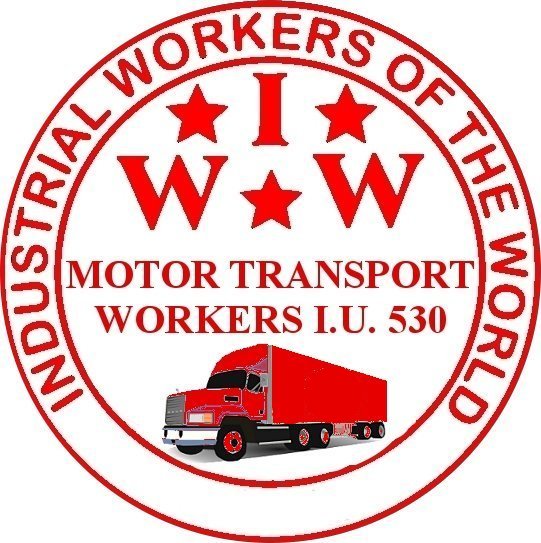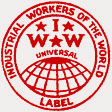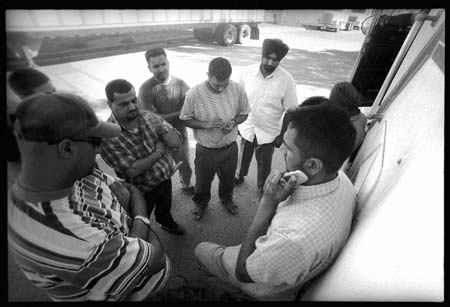Ground Transportation and Transit Workers Industrial Union 530
All workers in freight and passenger transportation by ground including truck, commuter
rail, bus, limousine, cab, and pedicab. All workers in towing and storage of motor vehicles. All repair, maintenance, and supply workers specific to the industry. All workers in bus and transit stations, including food, beverage, and newsstand workers.
 Welcome to the official web page of the Ground Transportation and Transit Workers Industrial Union 530 of the IWW. You will find valuable information here that will help improve conditions at your work and in your industry.
Welcome to the official web page of the Ground Transportation and Transit Workers Industrial Union 530 of the IWW. You will find valuable information here that will help improve conditions at your work and in your industry.
The IWW has been organizing in transportation since its founding in 1905. Unlike other unions, our organizers also work in the trucking industry, so they understand the conditions that affect you. MTWIU 530 members are building a proud, member-run, fighting union willing to stand up for their fellow workers in the trucking industry. We know that improvements at work can only be realized when solidarity reigns among the workers of our industry. Join us and start improving your work too.
Organizing Department Board Contacts:
-
organize [at] iww.org
Email List:
IWW Members working in this industry are encouraged and invited to join the email list for Industrial Department 500 at [email protected]
The campaign that started it all - Stockton Independent Truckers
At the basic level, a union is a group of workers acting together to improve their job. This can include:
- Raising wages
- Improving safety
- Removing or changing disrespectful supervisors
- Increasing worker control over hours
- Gaining paid sick days and vacation
- Increasing control over work rules
- Gaining company funded health insurance or pensions
- Dealing with management favoritism
- Improving job security.

Many things we take for granted were created by labor unions. For example, in many industries 100 years ago, the standard work day was 12 to 16 hours, including Saturdays and at least half a day Sunday. Workers organized to reduce the work day, the work week (weekends), the work year (paid holidays and vacation), and the work life (retirement and pensions.)
In your job as a trucker, your workdays are still long because there is not yet organization to force high enough rates to allow you to quit after eight hours. With a union, you can win those rights that others have. You can force the companies to pay fuel surcharges and get rates up so that you have more time for yourselves and your families.
Possibly the most important improvement workers can gain with a union is job security. Without a union, depending on state laws, a supervisor or manager can fire a worker for any reason, or for no reason. It is simple for a company to fire one worker, but when workers stand together, they can make it much more difficult. Many unions have forced management to abide by rules that strictly define when management may discipline workers and what type of discipline may be applied in a given situation. The greatly reduces the power of management to play favorites or fire workers they don't like for breaking minor rules.
Finally, to be successful, a union must a democracy. This is the opposite of how a company is run. All final decisions in a company are made by the top managers who then pass policy down to the supervisors who in turn force workers to obey or be fired. Since you have to have a job to live in this economy, it puts your survival in the hands of people who want to pay you as little as possible, cut corners on safety, and provide no benefits. Until workers organize to democratize the economy, we are at the mercy of those people.
The power of a union is your collective power as drivers. Without you, nothing moves. The companies can fire one of you. Even a lawyer can only rely on the goodwill of the courts. But with a union, the power is in your hands. Take it.
Download This Text as a Printable PDF Leaflet
